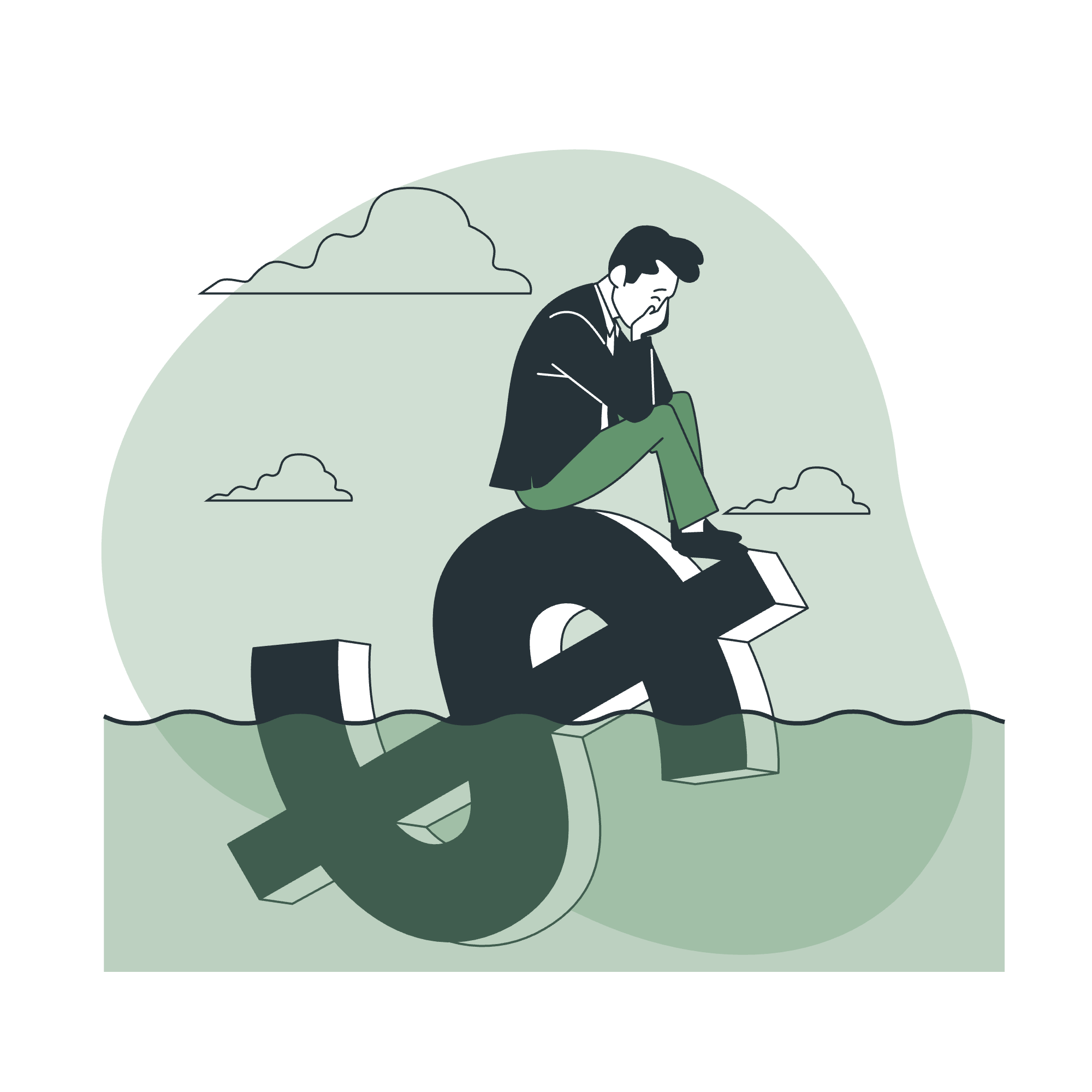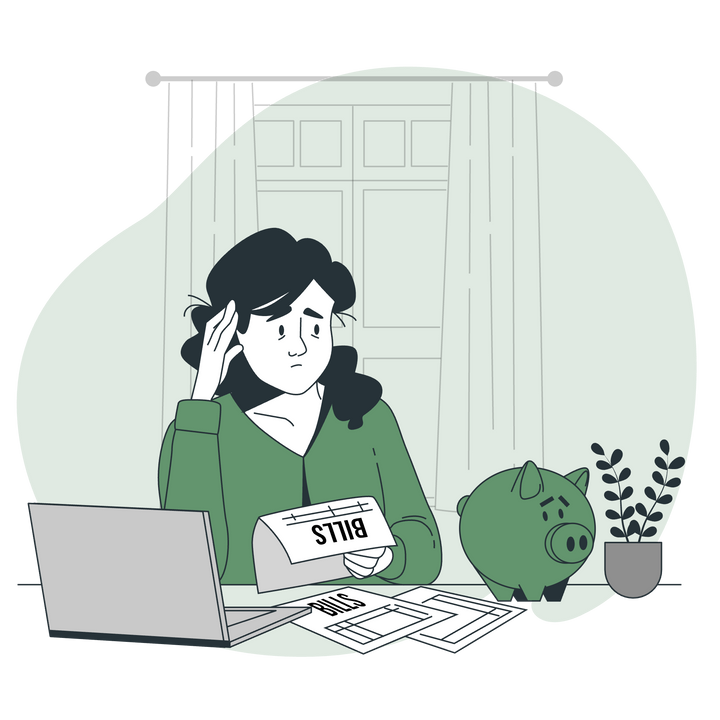Can I File Bankruptcy and Keep My Car?
Filing bankruptcy doesn't mean losing your car. Understand exemptions, negotiate with lenders, or choose Chapter 13 bankruptcy to keep your vehicle and manage debts. Consult an attorney for guidance.

Car ownership is important for most of us as it's crucial to our daily lives. However, when you're facing financial difficulties, you may consider filing for bankruptcy, and this may leave you wondering if you can keep your car. Bankruptcy can either protect your car or put it at risk of being seized by your creditors, depending on the type of bankruptcy you file under and the laws applicable in your state. This article will help you understand how bankruptcy could impact your assets and debts and explore the strategies that could help you keep your car if you file bankruptcy.
Understanding Bankruptcy and Its Impact on Your Assets
Bankruptcy is a legal process that can provide relief to individuals who are struggling with overwhelming debt. If you're considering filing for bankruptcy, it's important to understand the different types of bankruptcy available to you and how they can impact your assets.
The Bankruptcy Code offers two types of bankruptcy: Chapter 7 and Chapter 13. Each type of bankruptcy has its own set of rules and requirements.
Types of Bankruptcy: Chapter 7 vs. Chapter 13
Chapter 7 bankruptcy, also known as "liquidation," is the most common form of bankruptcy. It allows you to discharge most of your debts while surrendering your non-exempt property to your creditors, who'll sell it to recover the money you owe them.
Chapter 13 bankruptcy, or "reorganization," involves creating a three-to-five-year repayment plan. Under this plan, you'll pay some or all of your debts, depending on your income level, and keep your non-exempt property, including your car, as long as you make the payments under the plan.
It's important to note that not everyone is eligible for Chapter 7 bankruptcy. If your income is above a certain threshold, you may be required to file for Chapter 13 bankruptcy instead.

How Bankruptcy Affects Your Property and Debts
When you file for bankruptcy, an "automatic stay" is issued that prohibits your creditors from pursuing you or your property for debt collection actions, such as lawsuits, wage garnishments, or bank account seizures. This can provide immediate relief for individuals who are facing aggressive debt collection tactics.
However, it's important to note that not all property is protected under bankruptcy laws. Non-exempt property, such as luxury items or second homes, may be subject to seizure and sale by your creditors to pay off your debts.
It's also important to understand that bankruptcy can have long-term effects on your credit score and financial future. A bankruptcy filing will remain on your credit report for up to 10 years, making it difficult to obtain credit or loans in the future.
Before filing for bankruptcy, it's important to explore all of your options and seek the advice of a qualified bankruptcy attorney. They can help you understand the potential consequences of bankruptcy and determine if it's the right choice for your financial situation.
Exemptions and Protecting Your Car in Bankruptcy
If you're filing for bankruptcy, it's important to understand how exemptions work and how they can help protect your assets, including your car. An exemption is a legal provision that allows you to keep certain property, up to a certain dollar amount, from being sold to pay off your debts. This means that if you qualify for an exemption, you may be able to keep your car even if you file for bankruptcy.
Federal and State Exemptions
The federal exemption amounts are adjusted every three years to account for inflation. As of 2021, the federal exemption for a car is $4,000, with an additional $1,325 wildcard exemption. This means that if your car is worth less than $4,000 and you don't need to use the wildcard exemption for any other property, you can fully exempt your car under federal law.
However, if your car is worth more than $4,000, or if you need to use the wildcard exemption for other property, you may need to look to your state's exemption laws for additional protection.
Vehicle Exemption Limits and Equity
Each state has its own set of exemption laws, and the amount you can exempt for your car will vary depending on where you live. In some states, the exemption limit for cars is lower than the federal amount. For example, some states allow you to exempt only up to $3,000 in your car's equity value. Equity is the value of your car minus any liens or outstanding loans. If your car's value is higher than the state exemption limit, it may be sold in a Chapter 7 bankruptcy to pay your creditors.
Exemptions only apply to your equity in the car, not the total value. For example, if your car is worth $10,000 and you owe $5,000 on a car loan, your equity in the car is $5,000. If your state has an exemption limit of $3,000 for cars, you could exempt $3,000 of your equity and the remaining $2,000 could be used to pay off your creditors.
It's also worth noting that exemptions can be complex, and the rules can vary depending on the type of bankruptcy you file. If you're considering bankruptcy and want to protect your car, it's a good idea to consult with a bankruptcy attorney who can help you understand your options and navigate the process.
Strategies for Keeping Your Car in Chapter 7 Bankruptcy
When you file for Chapter 7 bankruptcy, you may be worried about losing your car. Your non-exempt property is subject to being sold to pay off your debts, including your car. However, there are strategies you can use to keep your car and avoid repossession.
Reaffirming Your Car Loan
If you're current on your car payments and want to keep your car, you may be able to enter a reaffirmation agreement with your lender. This agreement lets you keep your car by agreeing to continue making payments on the loan. By reaffirming your car loan, you can keep both your car and your credit score intact. However, it's important to note that if you fall behind on your payments after reaffirming the loan, the lender can still repossess your car.
Redeeming Your Car
If your car's value is less than the amount you owe on your car loan, you may be able to redeem it. Redemption involves paying the lender the fair market value of the car, which is usually lower than the loan amount, and taking ownership of the vehicle. This could be a good option if you have some money to spare but can't afford to continue with the monthly payments. However, it's important to note that not all lenders allow redemption, so you'll need to check with your lender to see if this is an option.
Negotiating with Your Lender
You may also choose to negotiate with your lender to keep your car. The lender may be willing to refinance your loan to lower your monthly payments or reduce your interest rate. You can also negotiate a repayment plan that allows you to keep your car while catching up on the missed payments over an extended period. However, it's important to note that not all lenders are willing to negotiate, so you'll need to be prepared to explore other options if this strategy doesn't work.
When considering these strategies, it's important to work with an experienced bankruptcy attorney who can help you navigate the complex bankruptcy process. They can help you understand your options and make informed decisions about how to protect your assets, including your car. With the right strategies and guidance, you can keep your car and move forward with a fresh financial start.
Retaining Your Car in Chapter 13 Bankruptcy
Chapter 13 bankruptcy can be a great option for those who want to keep their car while still repaying their debts. It is a court-approved payment plan that requires you to make payments to a bankruptcy trustee, who then distributes the funds to your creditors.
One of the biggest advantages of Chapter 13 bankruptcy is that you can keep your car while still repaying your debts. This can be especially important if you rely on your car to get to work or take care of your family.
The Chapter 13 Repayment Plan
The repayment plan typically lasts three to five years, and the amount you pay will depend on your income, expenses, and the amount you owe. The plan must be feasible, meaning it must be possible for you to complete the payments within the allowed time frame.
During the repayment plan, you will make payments to the bankruptcy trustee, who will then distribute the funds to your creditors. One of the advantages of this system is that it can help you manage your debts more effectively. Instead of having to deal with multiple creditors and payments, you can make a single payment to the trustee, who will take care of the rest.
At the end of the repayment plan, most of your unsecured debts (such as credit cards or medical bills) will be discharged, and you'll have a chance to start anew financially. This can be a great relief for those who have been struggling with debt for years.
Cramdowns and Reducing Your Car Loan Balance
If your car's value is less than the loan balance, Chapter 13 bankruptcy may provide a way to "cramdown" the loan balance. A cramdown reduces the loan balance to the fair market value of the vehicle and allows you to pay the reduced balance under the plan.
This can be a great way to save money and keep your car. By reducing the loan balance, you can lower your monthly payments and make it easier to keep up with the repayment plan.
It's important to note that cramdowns are not available for all types of loans. They are typically only available for car loans that are more than 910 days old. If you have a newer car loan, you may not be able to use this strategy.
Overall, Chapter 13 bankruptcy can be a great way to keep your car while still managing your debts. If you're struggling with debt and want to keep your car, this may be the right option for you.
Factors That May Affect Your Ability to Keep Your Car
Several factors influence your chances of keeping your car in bankruptcy, including:
The Value of Your Car
If your car is worth more than the exemption limit, it's at risk of being sold to pay off your debts. Conversely, if its value is less than the exemption limit, you may be able to keep it.
Your Loan Balance and Payment History
If you're behind on your car payments or have a high loan balance, it may be difficult to keep your car in bankruptcy. However, if you're current on your payments and have a small loan balance, it's easier to keep your car.
State Laws and Exemption Amounts
Each state has different laws regarding bankruptcy exemptions. Make sure to consult with a bankruptcy attorney or use a bankruptcy software tool to understand your state's laws and exemption amounts.
Salt and Pepper's Takeaways
Filing for bankruptcy doesn't necessarily mean you'll lose your car. By understanding the bankruptcy process, knowing your state's exemptions, and exploring strategies to keep your car, you can move forward with a fresh financial start without sacrificing an essential asset.




Comments ()